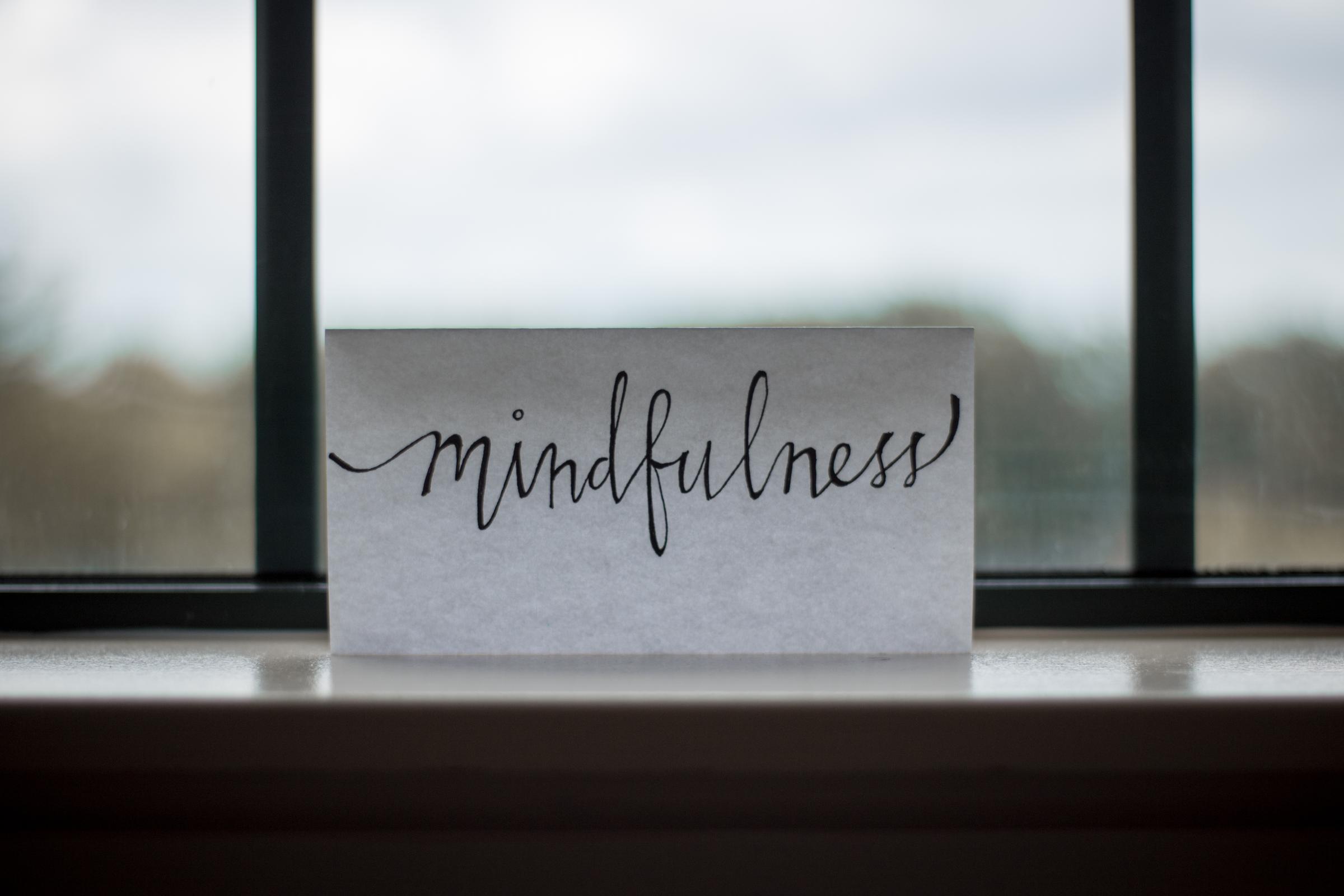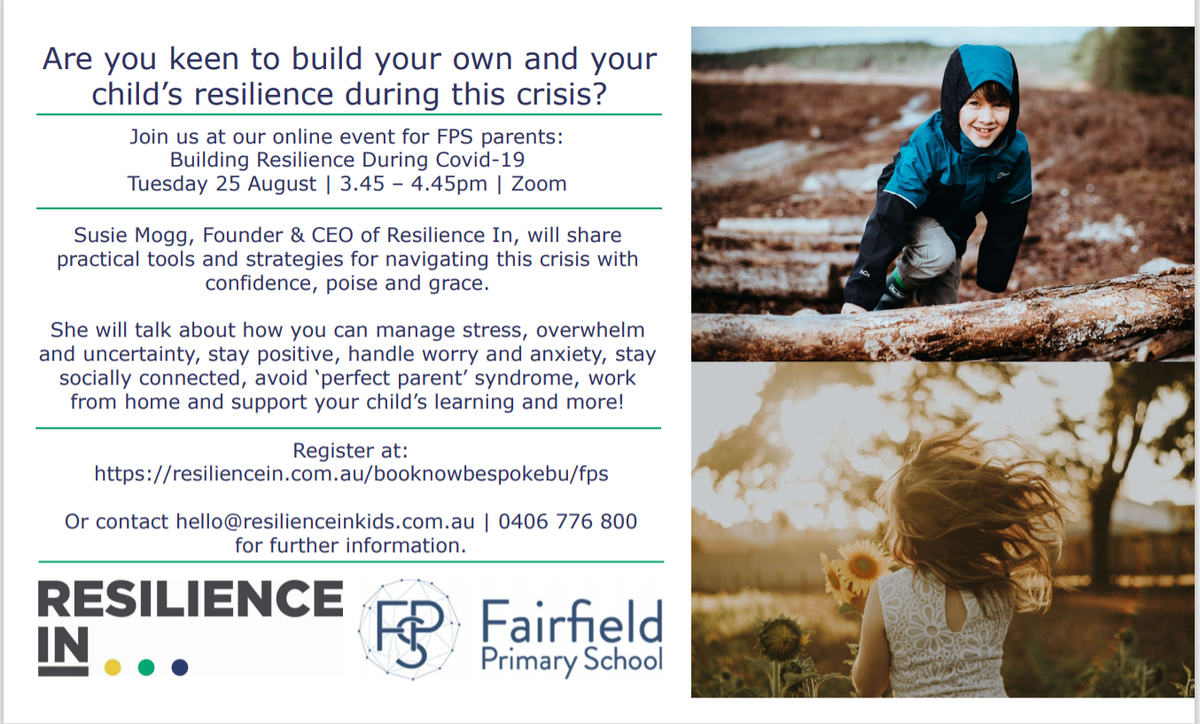Wellbeing
Parent Seminar | Mindfulness for Children

Wellbeing
Parent Seminar | Mindfulness for Children
Susie Mogg, Founder and CEO of Resilience In, will be presenting a webinar to FPS families about building resilience, managing stress and anxiety, and maintaining a positive outlook during these uncertain times.
Specifically, Susie will talk about how you can manage stress, uncertainty, stay positive, handle worry and anxiety, stay socially connected, avoid ‘perfect parent’ syndrome, work from home and support your child’s learning and more!
During the registration process, you will be asked if you have specific information you would like covered. This webinar will be conducted via Zoom. A link to join will be sent the day prior to the event.
~ Fairfield Primary School


It is easy to forget the importance of wellbeing and mindfulness when we are trying to balance many different responsibilities, and are dealing with considerable change. In the classroom, mindfulness and wellbeing activities can be the ones to leave the timetable when extra events pop up.
However, it is because of these changes and difficulties that it is extra important to take time to reflect on our wellbeing. A good way to start practising mindfulness regularly a home is to decide on a time as a family, whether it is daily or weekly/for 10 minutes or 30, to get the ball rolling.
Mindfulness at Home
Below are some mindfulness activities you can do as a family at home. These activities are mostly aimed at children, but can be extra impactful when done together. Children learn by watching and observing those around them, so allow your child(ren) to observe you being mindful and help them with these activities:
You may feel a bit silly at first, when squeezing your big toe or standing tall like Wonder Woman, but being silly is a great way to release your own tension and anxieties too. Older children may also feel silly or awkward when trying these activities, so laugh together about it and take in the serotonin!
A Reminder
Most importantly, remember to take care of your own mental health and wellbeing by finding time to do what makes you happy. You can’t pour from an empty cup, so take the time to fill up your own cup by reading a favourite book, going for that run, or sneaking the last pieces of chocolate, so you can give your family/your work/your class the energy they need.
For more information about the impact of COVID-19 on youth mental health, access the free course from the University of East Anglia, which has with useful articles and activities – see below.
~ Grace Clark, Year 4 Teacher